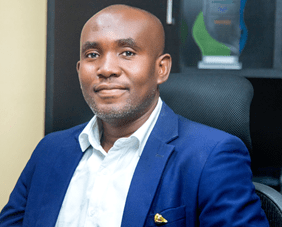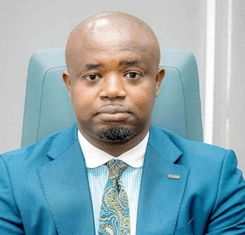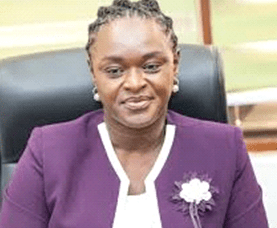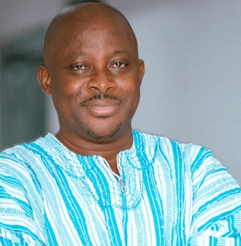By Kizito CUDJOE
With the President’s extractive sector appointments nearly complete – spanning upstream, midstream and downstream operations – the industry is at a critical juncture.
The nominees’ vetting marks the final step in forming a leadership team that will shape the extractive industry’s future.
These appointees will be responsible for steering regulatory agencies, overseeing policy implementation and driving investments that could transform the sector.
Given oil and gas’s strategic importance to national revenue, employment and energy security, industry experts and stakeholders have high expectations for the new leadership.
The success of these officials will largely depend on their ability to enhance regulatory efficiency, attract investment and implement policies that benefit both the industry and country as a whole.
The appointments so far cover upstream to downstream and are as follows:
- Ghana National Petroleum Corporation (GNPC) – Acting CEO, Edward Abambire Bawa
Mr. Bawa replaces Joseph Dadzie, who served as CEO until January 16, 2025. With over two decades in energy policy and management, Mr. Bawa is pursuing a PhD in Global Energy Policy at EUCLID University. He holds a BSc in Chemistry from the University of Cape Coast and an MBA in Finance from the University of Liverpool.
A former Member of Parliament for Bongo (2017-2025), Bawa served with the Parliamentary Committees on Mines and Energy and Communications, shaping Ghana’s energy policies. He previously worked as a Communications Consultant for the World Bank’s Oil and Gas Capacity Building Project at the Ministry of Energy. His expertise spans petroleum revenue management, upstream agreements and energy commercialisation.
- Petroleum Commission (PC) – Acting CEO, Victoria Emeafa Hardcastle
Appointed on January 17, Hardcastle succeeds Egbert Faibille Jnr. A Senior Partner and legal expert, she specialises in energy, corporate and commercial law. She holds a BA (Hons) in Law and Sociology, a Barrister-at-Law qualification and an LLM in Banking and Finance from the London School of Economics.
Hardcastle has worked extensively with the government of Ghana, regulatory agencies and international development partners, bringing expertise in investment, banking and finance to the Petroleum Commission.
- Bulk Oil Storage and Transportation Company (BOST) – Acting MD, Afetsi Awoonor
Mr. Awoonor takes over from Dr. Edwin Provencal, bringing nearly a decade of experience in Africa’s oil and gas sector. He was previously a Senior Partner at DOC Africa and Regional Head of Sales and Marketing at Convenio Energy, overseeing hydrocarbon trading in the Southern African Development Community (SADC) region.
Mr. Awoonor holds an Executive Master’s in International Oil and Gas Leadership from the Geneva Graduate Institute and a Master’s in Oil and Gas Management from IFP School.
He previously worked at BOST as Manager of Government Relations (2016-2017) and has experience in trading, business development and industry partnerships.
- National Petroleum Authority (NPA) – Acting CEO, Godwin Kudzo Tameklo
Mr. Tameklo, a legal professional, succeeds Dr. Mustapha Abdul-Hamid. He holds an LLM in Natural Resources (Downstream Petroleum) from the University of Ghana and was called to the Ghana Bar in 2013.
Previously a partner at Ayine & Partners Law Firm, Tameklo specialised in criminal, civil and commercial litigation. His legal expertise spans regulatory compliance, petroleum policy and contract negotiations.
He also served as Director of Legal Affairs for the National Democratic Congress (NDC).
- Public Utilities Regulatory Commission (PURC) – Acting Executive Secretary, Dr. Shafic Suleman
Dr. Suleman, a Senior Lecturer at the Institute for Oil and Gas Studies at the University of Cape Coast, takes over from Ishmeal Ackah. His expertise includes energy and sustainability, petroleum economics and energy policy.
He holds a PhD in Energy and Sustainability from De Montfort University (UK), an MSc in Energy Management from Robert Gordon University (UK) and a Bachelor of Laws (LLB) from the University of Cape Coast.
He is also a certified Energy Risk Professional (ERP) from the Global Association of Risk Professionals (GARP-USA).
- Environmental Protection Agency (EPA) – Acting CEO, Prof. Nana Ama Klutse
Prof. Klutse, a Senior Lecturer in Physics at the University of Ghana, takes over from Henry Kwabena Kokofu. A climatologist, she previously worked as a Senior Research Scientist at the Ghana Space Science and Technology Institute under the Ghana Atomic Energy Commission.
She holds a PhD in Climatology from the University of Cape Town, with research focusing on climate modelling, energy sustainability and gender impacts. She has co-authored several scientific publications and contributed to climate change research projects, including the global CORDEX experiment.
- Pending Appointments
No announcements have been made regarding new leadership for Ghana National Gas Company (GNGC) and the Energy Commission.
Expectations
With the oil and gas sector facing evolving global energy trends, the success of these appointments will depend on their ability to implement reforms that drive industry growth while balancing economic and environmental sustainability.
To gain a deeper understanding, industry experts are weighing in on key questions: What are their expectations from these appointments? What strategies should be employed to streamline operations within regulatory agencies? And most importantly, what policy measures are needed to maximise the sector’s benefits for the economy and nation as a whole?
Policy Lead-Petroleum and Conventional Energy, Africa Centre for Energy Policy (ACEP), Kodzo Yaotse was of the view that the new administration should isolate politics and partisan interest from the sector’s management.
“This is very important to ensuring certainty in applying the sector’s rules and regulations. Consequently, investors will have confidence in the industry as arbitrary interpretation and application of the rules are avoided.”
He urged government to swiftly resolve disputes with existing operators to facilitate their continued investment and accelerate production, stimulating genuine investment attraction into the country’s basins and forcing out speculative licences to re-award their acreage to more competent oil companies.
“Local content is essentially a function of the value of contracts available to be awarded to local businesses. As the sector shrinks, local content will suffer. The opposite is true.”
The Executive Director-Africa Sustainable Energy Centre (ASEC), Justice Ohene-Akoto, noted concerns about appointing political figures rather than subject-matter experts – warning that inexperience could slow progress and lead to inefficiencies.
He said the majority of those being appointed are not subject-matter experts. In view of this, he said it would take them time to adjust – which will waste many man-hours.
“They are still going to rely on the subject-matter experts within, who are likely going to sabotage them.”
Going forward, he said, “We need to find a thin line between politics, personal interests and national interests. That’s where the G8 countries get it right. In the end, they will prioritise national interests above other interests”.
However, the Executive Director-Institute for Energy Security (IES), Nana Amoasi VII, welcomed the appointment of young professionals but stressed a need for transformative leadership.
He said key expectations include driving investment & sustainability and ensuring alignment with energy transition goals while attracting both foreign and domestic capital.
“Strengthening institutional governance through transparency and accountability, enhancing operational efficiency to maximise productivity and promoting local content and capacity building to increase Ghanaian participation in the value chain are all vital.”
Additionally, he said they are expected to maintain energy security and market stability through strategic fuel reserves and price regulation, as well as enhancing regulatory compliance to uphold industry standards and environmental safety – which will be key priorities in their leadership roles.
Among other things, he called for fast-tracking upstream activities to reverse declining oil and gas production and grow the sector; upgrading particularly Tema Oil Refinery’s (TOR) refining and storage capacities.
Furthermore, he called for a review of outdated policies to align with global best practices, improve the ease of doing business to attract investors and integrate renewable energy and carbon reduction strategies in all endeavours of the petroleum industry’s upstream and downstream sectors.















